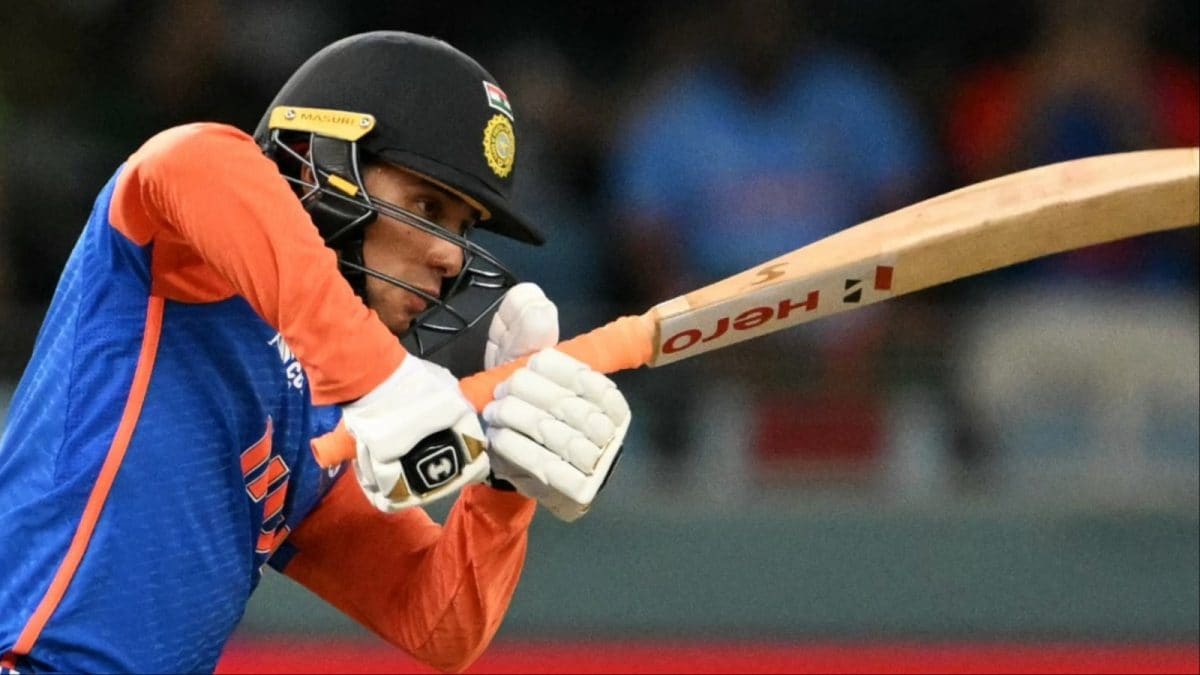When India takes on Pakistan, cricket becomes more than a game. It is theatre, battle, and celebration rolled into one. In such cauldrons, reputations are made and broken. On Sunday, at just 23, Abhishek Sharma didn’t just walk into that arena—he owned it. His blistering 74 off 39 balls, laced with five sixes and four fours, wasn’t merely an innings. It was a declaration. India may have unearthed its next batting rock star. This was no run-of-the-mill knock. The stage was pressure-laden: a crunch Asia Cup group clash, Pakistan brimming with fast-bowling pedigree, and the ghosts of Indo-Pak thrillers looming large. But Abhishek batted as if he was jamming with his guitar at a college fest, unfazed by the noise, unflustered by the green shirts glaring at him. He came, he saw, and he shredded. For many, the comparisons with Virender Sehwag came rushing back. Not without reason. Sehwag’s batting was a cocktail of audacity and disdain for bowlers; Sharma’s 74 carried the same intoxicating spirit. He isn’t built like a bruiser, nor does he snarl like a stereotypical aggressive opener. Instead, he smiles as he dismantles attacks—a silent assassin with a willow. What stood out was the ease with which he neutralized Pakistan’s vaunted pace attack. Shaheen Shah Afridi’s early menace, usually India’s banana peel, was reduced to a passing footnote. Haris Rauf, who thrives on intimidation, found himself dispatched over the ropes like a DJ’s afterthought. Even Shadab Khan, Pakistan’s reliable spinner, was treated with a mix of respect and ruthlessness that spoke of cricketing maturity beyond Sharma’s years. The innings was also a reminder of how Indian cricket has evolved. Gone are the days when we desperately sought one messiah to carry the batting—think Sachin Tendulkar in the 1990s.

Today, the bench strength is so obscene that every series seems to throw up a new hero. But Abhishek’s knock was different: it had the flair of a generational talent rather than a fleeting cameo. The last time Indian fans felt such electricity in an India–Pakistan clash was when Virat Kohli carved that epic chase in Melbourne during the 2022 World Cup. Abhishek’s 74 carried a similar pulse, but with a freshness that signals a new dawn. Pakistan, of course, will offer excuses. That their bowlers had an off day. Those conditions didn’t suit them. But the truth is simpler: they were out-batted by a youngster who didn’t care for reputations. In a rivalry often dominated by nerves and collapses, Sharma’s fearless stroke play felt liberating, not just for him but for Indian fans weary of “respecting” Pakistani bowlers. Respect is fine, but sixes over mid-wicket earn louder applause. Abhishek Sharma’s rise also tells a story about the new India in cricket whites (or blues). Confident, unapologetic, ambitious. There is no waiting for “the right time” or “experience to kick in.” He has stormed onto the stage and demanded attention. For selectors, his performance poses an irresistible dilemma: how do you keep such a talent out of India’s T20 World Cup blueprint? The truth is, you can’t. And perhaps that is what should scare Pakistan and others the most. India already boasts Rohit Sharma’s composure, Virat Kohli’s aura, Suryakumar Yadav’s 360-degree artistry, and Hardik Pandya’s explosiveness. Now, along comes a youngster who treats an India–Pakistan match as just another evening jam session—and walks away with Man of the Match. Sharma’s 74 wasn’t just a knock. It was a statement of intent. That the future of Indian batting is not just in safe hands—it is in swaggering hands. Cricket, after all, is as much about theatre as it is about technique. On Sunday, India’s new rock star gave us both.




